Biography

Elizabeth “Betita” Sutherland Martinez spent her life fighting the death and destruction imposed by the White House and the Pentagon, from border jails to police barracks in every city and town across the United States. | more…

By the time he was 26, Michael Tigar was a legend in legal circles well before he would take on some of the highest-profile cases of his generation. In his first U.S. Supreme Court case—at the age of 28—Tigar won a unanimous victory that freed thousands of Vietnam War resisters from prison. A relentless fighter of injustice—not only as a human rights lawyer, but also as a teacher, scholar, journalist, playwright, and comrade—Tigar has been counsel to Angela Davis, Jamil Abdullah Al-Amin (H. Rap Brown), the Chicago Eight, and leaders of the Black Panther Party, to name only a few. It is past time that Michael Tigar wrote his memoir. | more…
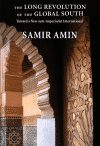
In this second volume of his memoirs, Samir Amin takes us on a journey to a dizzying array of countries, primarily in the Arab World, Africa, Asia, and Latin America, recounting in detail the stages of his ongoing dialogue over several decades with popular movements struggling for a better future. Along the way, we meet government leaders, activists in popular movements, and working people, both rural and urban. As in his many works over the years, The Long Revolution of the Global South combines Amin’s astute theoretical analyses of the challenges confronting the world’s oppressed peoples with militant action. | more…
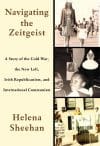
Why would an American girl-child, born into a good, Irish-Catholic family in the thick of the McCarthy era—a girl who, when she came of age, entered a convent—morph into an atheist, feminist, and Marxist? The answer is in Helena Sheehan’s fascinating account of her journey from her 1940s and 1950s beginnings, into the turbulent 1960s, when the Vietnam War, black power, and women’s liberation rocked her bedrock assumptions and prompted a volley of life-upending questions—questions shared by millions of young people of her generation. But, for Helena Sheehan, the increasingly radicalized answers deepened through the following decades. | more…
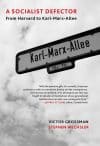
The circumstances that impelled Victor Grossman, a U.S. Army draftee stationed in Europe, to flee a military prison sentence were the icy pressures of the McCarthy Era. Grossman—a.k.a. Steve Wechsler, a committed leftist since his years at Harvard and, briefly, as a factory worker—left his barracks in Bavaria one August day in 1952, and, in a panic, swam across the Danube River from the Austrian U.S. Zone to the Soviet Zone. Fate—i.e., the Soviets—landed him in East Germany, officially the German Democratic Republic. There he remained, observer and participant, husband and father, as he watched the rise and successes, the travails, and the eventual demise of the GDR socialist experiment. | more…
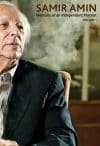
Forthcoming in November 2018
This is the first volume of the autobiography of Samir Amin, who, born in Cairo in 1931, became a world-renowned Marxist economist, intellectual, and revolutionary. | more…
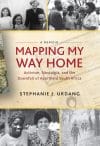
Stephanie J. Urdang was born in Cape Town, South Africa, into a white, Jewish family staunchly opposed to the apartheid regime. In 1967, at the age of twenty-three, no longer able to tolerate the grotesque iniquities and oppression of apartheid, she chose exile and emigrated to the United States. There she embraced feminism, met anti-apartheid and solidarity movement activists, and encountered a particularly American brand of racial injustice. Urdang also met African revolutionaries such as Amilcar Cabral, who would influence her return to Africa and her subsequent journalism. In 1974, she trekked through the liberated zones of Guinea-Bissau during its war of independence; in the 1980’s, she returned repeatedly to Mozambique and saw how South Africa was fomenting a civil war aimed to destroy the newly independent country. From the vantage point of her activism in the United States, and from her travels in Africa, Urdang tracked and wrote about the slow, inexorable demise of apartheid that led to South Africa’s first democratic elections, when she could finally return home. | more…
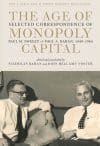
Paul A. Baran and Paul M. Sweezy were two of the leading Marxist economists of the twentieth century. Their seminal work, Monopoly Capital: An Essay on the American Economic and Social Order, published in 1966, two years after Baran’s death, was in many respects the culmination of fifteen years of correspondence between the two, from 1949 to 1964. During those years, Baran, a professor of economics at Stanford, and Sweezy, a former professor of economics at Harvard, then co-editing Monthly Review in New York City, were separated by three thousand miles. Their intellectual collaboration required that they write letters to one another frequently and, in the years closer to 1964, almost daily. Their surviving correspondence consists of some one thousand letters. | more…
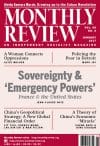
Shortly after the election of Donald Trump, the alt-right organization Turning Point USA introduced its notorious Professor Watchlist…, listing some 200 radical academics in the universities as dangerous professors. Stories regarding this list were soon being carried in major papers throughout the country. In contrast to David Horowitz’s list of “the 101 most dangerous academics in America” a decade ago, the current Professor Watchlist has behind it the new sense of power on the extreme right provided by Trump’s electoral victory.… There can be no doubt that this is part of an attempted new McCarthyism. In terms of its overall orientation, the alt-right strategy here resembles the Gleichschaltung (“bringing into line”) in 1933–35 in Hitler’s Germany, where intimidation was directed at all the major cultural institutions, including universities, with the object of getting them to align with the new dominant views. | more…
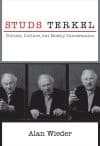
Studs Terkel was an American icon who had no use for America’s cult of celebrity. He was a leftist who valued human beings over political dogma. In scores of books and thousands of radio and television broadcasts, Studs paid attention—and respect—to “ordinary” human beings of all classes and colors, as they talked about their lives as workers, dreamers, survivors. Alan Wieder’s Studs Terkel: Politics, Culture, but Mostly Conversation is the first comprehensive book about this man. | more…
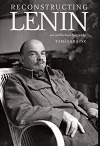
Vladimir Ilyich Lenin is among the most enigmatic and influential figures of the twentieth century. While his life and work are crucial to any understanding of modern history and the socialist movement, generations of writers on the left and the right have seen fit to embalm him endlessly with superficial analysis or dreary dogma. Now, after the fall of the Soviet Union and “actually-existing” socialism, it is possible to consider Lenin afresh, with sober senses trained on his historical context and how it shaped his theoretical and political contributions. Reconstructing Lenin, four decades in the making and now available in English for the first time, is an attempt to do just that. | more…
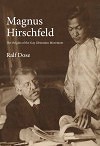
Magnus Hirschfeld (1868-1935) was one of the first great pioneers of the gay liberation movement. This biography, first published to acclaim in Germany, follows Hirschfeld from his birth in the Prussian province of Pomerania to the heights of his career during the Weimar Republic and the rise of German fascism. Ralf Dose illuminates Hirschfeld’s ground-breaking role in the gay liberation movement and explains some of his major theoretical concepts, which continue to influence our understanding of human sexuality and social justice today. | more…











